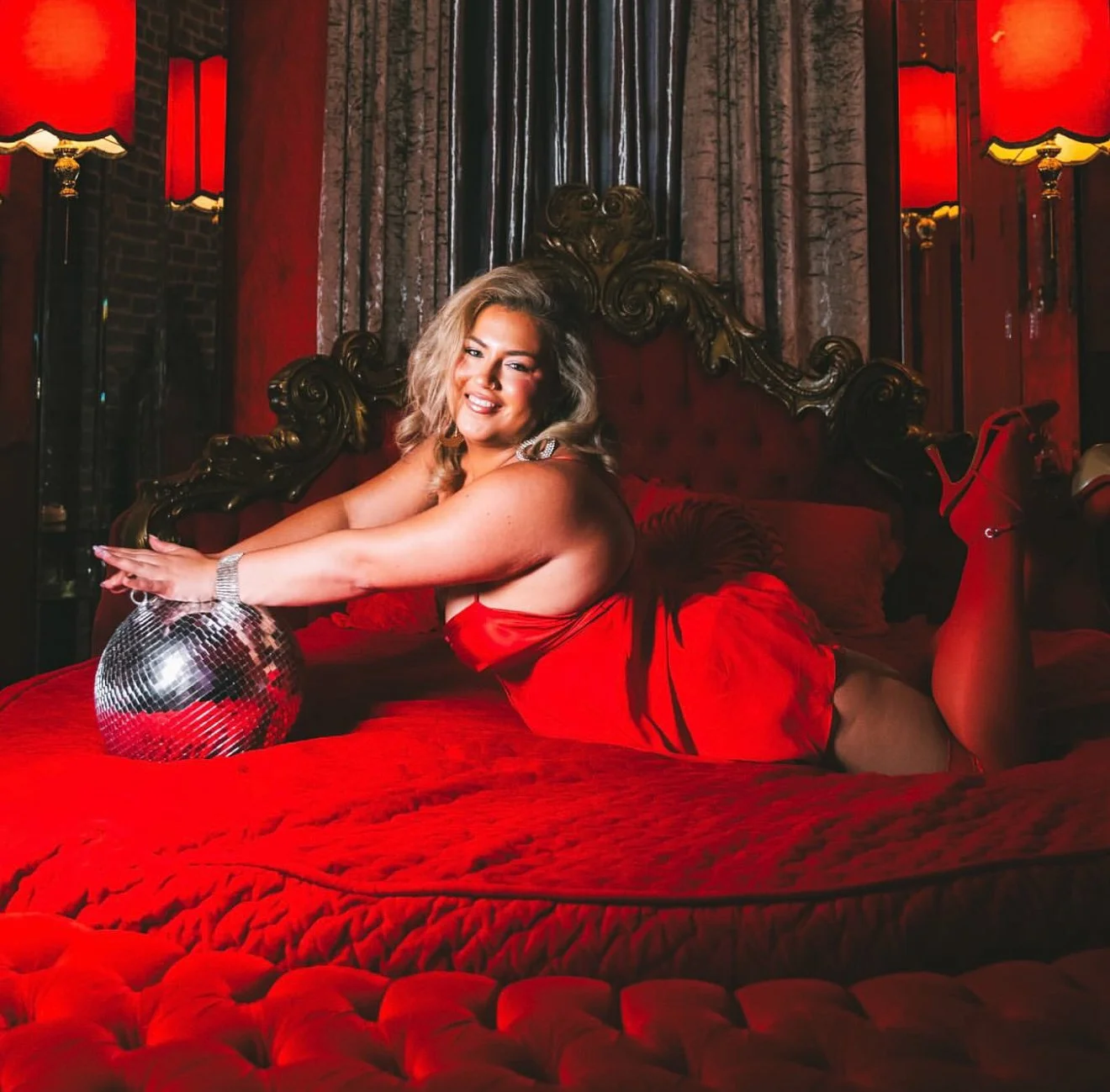“Soprano” by Molly Grace Review- A Supernova of Queer Joy
Photo by Elizabeth Marsh
“Soprano” by Molly Grace is like the fun cousin you grew up with. From the opening beat, you are immediately transported, being launched into a supernova of sound. There is an explosion of harmony, like Pop Rocks, which slowly reveals a fizzling new truth. It slowly grows into a melody that feels reminiscent of those unforgettable summer road trips down by the shore with your queer lover, who might or might not be just a friend. “Soprano” is a bundle of energy with unparalleled enjoyment of what it means to be unapologetically yourself.
Every song that Grace writes gives you instant serotonin; however, she accomplishes this in a very clever way. She changes the way that your body and brain react to her music, creating varying sensations of joy through the altering vibrations within her melodies. Grace accomplishes this by producing music like “FEMME,” a homage to cheerleading chants, and then shifts her narration in songs like “Lady Lady,” a more daring song that celebrates her liberated sexuality.
In “Soprano,” she combines these two ideas, creating similar vibrations to the cheerleading anthem in “FEMME” with the sensual subject matter seen in “Lady Lady.” Grace skillfully meshes together her lyrical wit: “She made me a soprano/Singing out high Cs,” and then she proceeds to riff high Cs, describing the uncontained enjoyment that she cannot express in words.
With an appreciation for the artists that came before her, she blends known styles, like 80’s techno beats or disco pop (which has made a recent comeback in mainstream vocalists' works), similar to Sabrina Carpenter’s “Manchild” or Chappell Roan’s “Good Luck Babe” (a big thank you to Jack Antoff). “Soprano” is reminiscent of popular 2000s artists' hits, such as Katy Perry’s “I Kissed a Girl.” If asked to describe “Soprano,” I would say she takes inspiration from artists like Chappell Roan, with an emphasis on queer activism, while creating swirling melodies with 80s synth beat influences. From the first listen, “Soprano” felt like a continuation of Carly Rae Jepsen’s “The Loneliest Time,” with just a little extra sparkle.
In Grace’s past works, like her EP: Everybody Wants to Know Molly (which felt reminiscent of Taylor Swift’s self-titled album), she introduced herself as a duet partner to her guitar, allowing her craft as a musician to shine, with her music falling into the category of soft indie pop. Grace’s voice was gentle, soothing the listener into her queer and coming-of-age subject matter, yet her authentic voice as an artist still felt hidden.
As Grace has released more music, she has settled into her new voice. She retired her guitar as a duet partner, allowing herself to take the lead on stage. Her transformation can best be seen as being similar to Taylor Swift’s—a girl with teardrops on her guitar morphing into a full-blown pop star.
Grace is a part of a new generation of pop stars in the making. What makes this new emerging group different is their equal focus on music and creating a platform that defines their stance as artists and activists. Grace is no exception to this; she prides herself on authenticity, continuing to advocate a message of pure joy in queer identities. Grace demands her own authority in her sexuality as a lesbian, rejecting those who try to strip her and her community’s voice.
